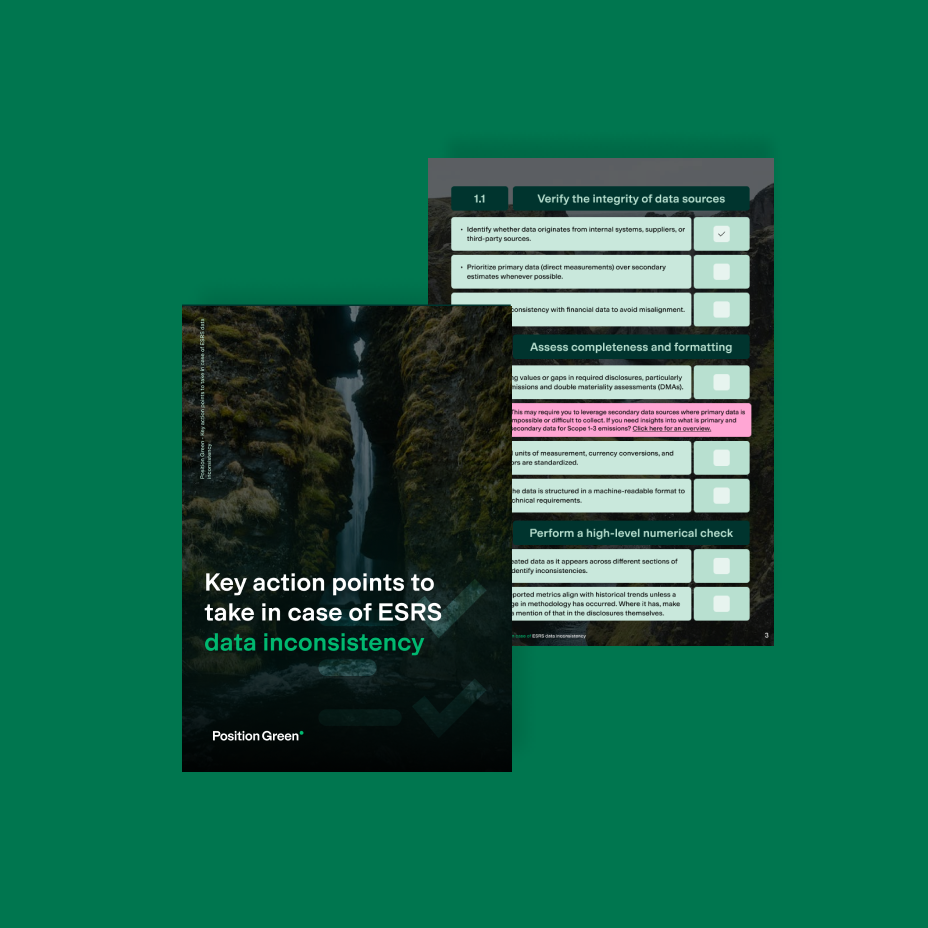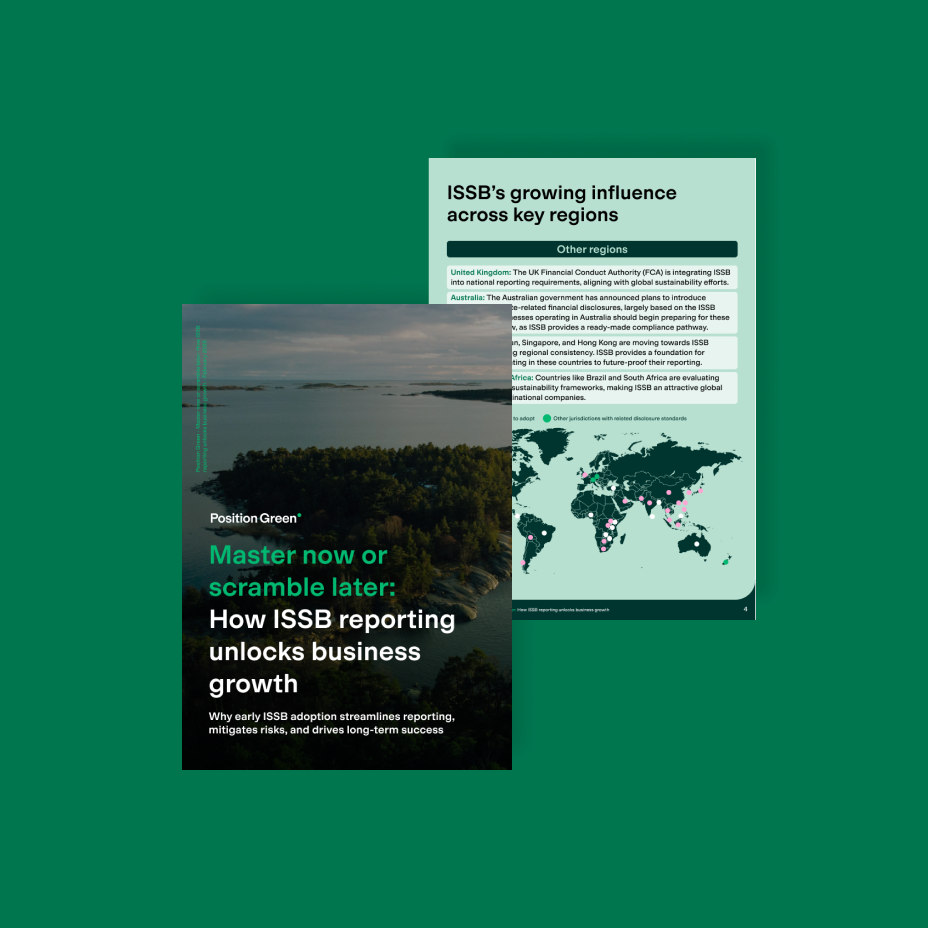Key action points to take in case of ESRS data inconsistency
Ensuring accuracy and consistency in European Sustainability Reporting Standards (ESRS) reporting is essential for compliance, audit readiness, and stakeholder trust. However, inconsistencies can arise due to data fragmentation, calculation errors, or misalignment with financial reporting. Addressing these issues effectively requires a structured approach.

This checklist provides CFOs, CSOs, and sustainability professionals with a step-by-step guide to identifying, resolving, and preventing ESRS data inconsistencies.
Download the checklist to learn how to:
- Conduct a structured preliminary data review to verify sources, assess completeness, and identify red flags
- Categorize inconsistencies, whether they stem from calculation errors, methodology shifts, or conflicting data
- Implement corrective actions with clear documentation and cross-team collaboration
- Strengthen reporting processes with automated validation, internal review cycles, and external assurance alignment
By taking a proactive approach to data integrity, organizations can enhance the reliability of their ESRS disclosures and improve overall sustainability reporting processes.
Download the checklist today to ensure your ESRS reporting meets the highest standards of accuracy and compliance.
Get our resource delivered to your email inbox by signing up below.
More resources
The post Key action points to take in case of ESRS data inconsistency appeared first on Position Green.


